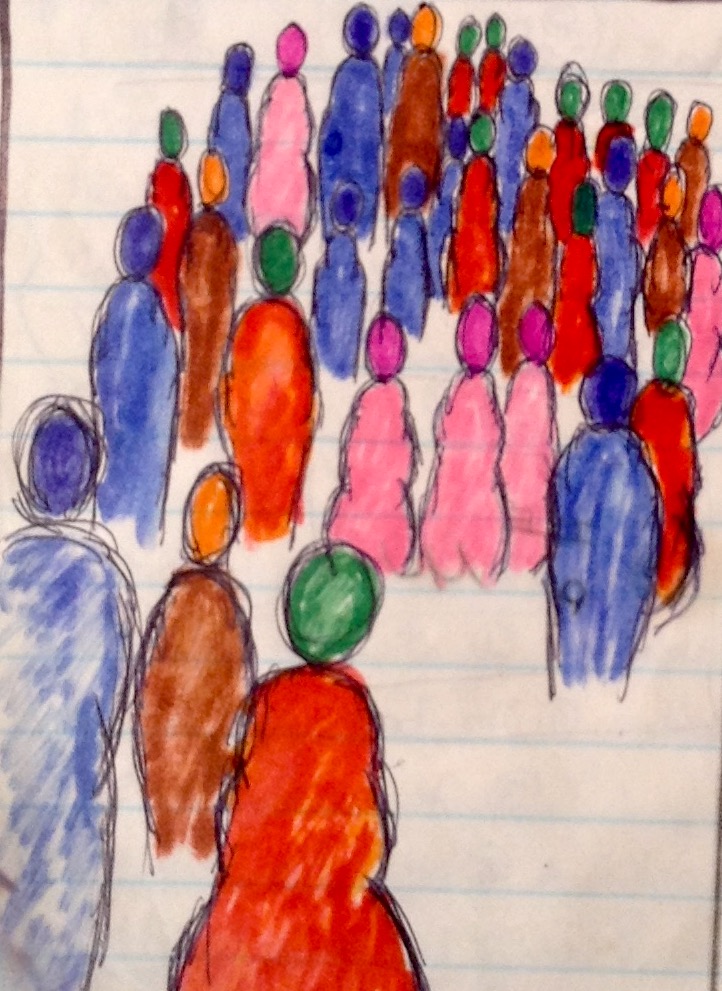In The Beginning


GAIA’s foundations are built on ethical and ecological ideals. Its constitution has developed, and continually evolves, around the needs of the organization and the organization members, not set rules, society’s expectations or established ways. Every member, from directors to associate members must embrace the organization’s ethics and be continually aware of the ethical and ecological issues, pertaining to self-sufficiency and regional commerce: questioning the need for Middle-Men’ and ‘Clichés’.
Ethics and ecology are not carved in stone or institutionalized doctrines. They are evolutionary ways of living, and individual members should not fall into stereo-types. An archaeologist once proclaimed to a television audience of millions - perhaps without first considering the ramifications of whether anyone would understand his words or sentiment - that, “an archaeologist must at all times remember one thing; absence of evidence, is not evidence of absence.” This has become a spiritual emblem for GAIA as we pursue unchartered avenues, challenge established ways, follow unorthodox roads and create our own individual path (in the absence of one that suits our requirements).
Unlike most organizations, GAIA is not solely considerate to human requirements. GAIA is an ecological organization, growing out of its involvement with the world and considerate to the needs of all species of animals, flora, habitats and environments. Our approach is, that, we are here to improve upon and learn from our mentors. Improving and adapting to the changing needs of the world and introducing our own approach.
We don't believe, that, ‘Green’ is about going back to primitive life. Nor is it blind obedience to protest. It is a way of life. It is about recognizing, then distinguishing tools from necessities. Recognizing that cars, banks, money, computers, stereos and ilk are tools not necessities. Once one recognizes this/once recognized one can then use them accordingly. Even in a ‘Green’ culture one can use modern technologies! It is simply how and why one uses them that is relevant.
We need to re-address how we approach: language, technology, ideologies... Instead of saying 'normal', we should say 'common place'. For what is normal, but that which is common place? We need to question all the time. Inquisitiveness flushes out truth and the annoyance of perpetual questions forces others and oneself to continually consider all variables, all opinions, all options, all moral and political issues, all views and angles, and in so doing elevates intellectually, ecologically, ethically and artistically.
Unlike some small, local or individual campaign organizations GAIA does not subscribe to rudeness in our efforts to present a better world and understanding. No amount of adversity and campaigning is an excuse for rudeness. No organization can afford to lose supporters. The truly effective way to make a difference and change the multi-national grip on our world is consumer boycott. You do not have to join an organization to make a difference. Stop waiting for a group to do your work and start your own campaign. Cut out the 'Middle-Man'.
People will always criticise. They will always find dissatisfaction or annoyance with something. Even with good. There will always be resentment welling-up inside of the small-minded person, that, someone is trying to do good. If you are a vegetarian, you are lambasted for drinking milk. If you are an environmentalist, you are lambasted for accepting a lift in a car. If you are a socialist, you are labelled a Labour Party supporter and lambasted for owning luxuries. If you are liberal minded, you are labelled as New Labour and lambasted for being idealistic.
GAIA’s ecological manifesto is to educate by example. It is not for its individual members to stand trial or justify their goodness. If you have criticisms, make your own path and do it yourself, instead!
Data Protection: We do not collect or store any personal information from e-mails, telephone conversations or websites (unless we have your consent to retain your e-mail or postal address for further correspondence). Nor do we pass-on any personal information to any third party.